US Navy Sails Drone Through Strait Of Hormuz, As Iran Watches
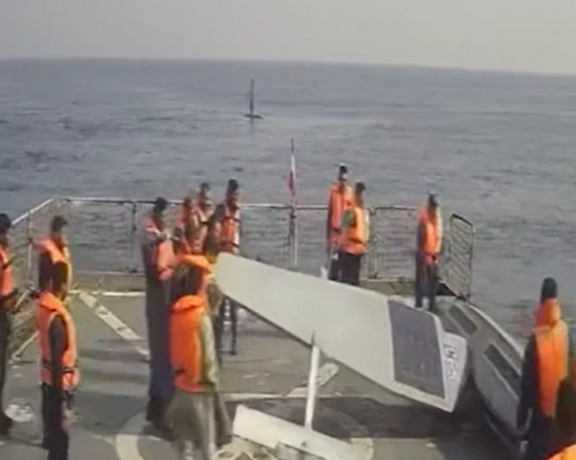
The US Navy sailed its first drone boat through the strategic Strait of Hormuz Wednesday, where American sailors often face tense encounters with Iranian forces.

The US Navy sailed its first drone boat through the strategic Strait of Hormuz Wednesday, where American sailors often face tense encounters with Iranian forces.
The trip by the 13-meter (41-foot) speedboat carrying sensors and cameras, drew the attention of Iran's Revolutionary Guard, but took place without incident, said Navy spokesman Cmdr. Timothy Hawkins.
Two US Coast Guard cutters accompanied the drone.
Iran announced last September that it had seized and released two US naval drones in the Red Sea. The US confirmed the claim but refused to comment.
But the passage through the Hormuz was without incident. The strait is a busy waterway between Iran and Oman which at its narrowest is just 33 kilometers (21 miles) wide.
A fifth of all oil traded passes through the strait, which connects the Persian Gulf to the Gulf of Oman.
“The Iranians observed the unmanned service vessel transiting the strait in accordance with international law,” Hawkins told The Associated Press.
He said an Iranian drone and at least one Houdong-class fast-attack vessel operated by Iran's Revolutionary Guard observed the MAST-13 drone.
The US Navy's Bahrain-based 5th Fleet patrols Mideast waters, particularly the Persian Gulf and the Strait of Hormuz, to keep open the waterways for international trade, as well as protect American interests and allies.
However, Iran views the Navy's presence as an affront, and vows to expel US forces from the Middle East.
The 5th Fleet launched a special drone task force last year, aiming to have a fleet of some 100 unmanned drones, both sailing and submersible, operating in the region with America’s allies.

Iran’s exiled prince Reza Pahlavi, who is on a historic visit to Israel, expressed hope for amicable relations once Iran becomes a secular and democratic country.
During a joint press conference with Israel’s Intelligence Minister Gila Gamliel, who is hosting Pahlavi, in Tel Aviv on Wednesday, Pahlavi said that Iranians are the extreme opposite of the country’s current rulers, and that the regime does not represent the Iranian nation.
He added that Iranians are thrilled to see the son of their last shah is spreading the message of peace with Israelis on their behalf. “They have no antagonism to any nation or any faith,” Pahlavi said.
“I know that Iranians and Israelis see how important it would be for our future to be strategic partners, to work together, to address many issues. I come here to convey this message to Israeli citizens,” he said.
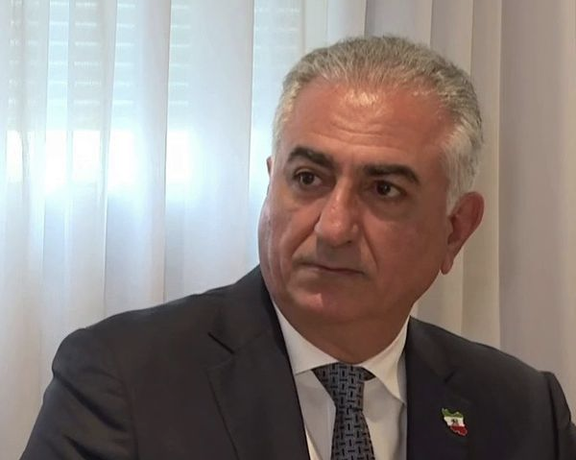
As he was welling up and holding back tears, Pahlavi said, "The amount of affection and emotions demonstrated by the Iranian Israeli community, but also regular Israeli citizens, has been overwhelmingly warm and welcoming, and it has affected myself and my wife very much... What you see in me is not just me, it’s millions of voiceless Iranians who feel the same emotions being in captivity, in repression.”
He noted that the Islamic Republic brought the situation to the point “when once a proud nation has been faced with the designation as a terrorist nation.”
Pahlavi then talked about the prospects of peace and calm in the region when the Islamic Republic collapses. “Imagine a different Iran, not ruled by a religious dictatorship, but [what] a secular democratic Iran could mean for our region, for stability and how it would impact the world positively,” he said.
He also enumerated some of the negative impacts of the Islamic Republic on the globe “from the nuclear threat, to spread of Islamic radicalism, and support for terrorism.”
He said he is in Israel “to explore how we can cooperate in helping the Iranian people in their campaign for freedom,” referring to the “Women, life, liberty” movement. He described the uprising as “the first modern day – or all time perhaps" women-led revolution.
He also reiterated that he is not seeking the throne in the future of Iran but only wants to help the people of the country to establish a constituent assembly and hold a referendum.
Referring to the 2020 US-brokered Abraham Accords aimed at normalizing relations between Israel, the United Arab Emirates and Bahrain, Pahlavi also expressed hope for a “Cyrus Accord” for peace between Tehran and Jerusalem.
While Pahlavi was promoting peace with the Israelis, Islamic Republic’s President Ebrahim Raisi threatened to destroy the Israeli cities of Tel Aviv and Haifa in an inflammatory speech in Tehran on Tuesday.
During his stay, Pahlavi visited the Wailing Wall and attended the ceremony to mark Israel's Holocaust Remembrance Day at the Yad Vashem memorial in Jerusalem. He also met with Prime Minister Benjamin Netanyahu and President Isaac Herzog in the past two days.
Netanyahu, in his opening remarks at the Remembrance Day event, pointed to the similarities between the Islamic Republic and the Nazis, saying that Israel’s victory in the future requires constant determination and fight against those who seek to kill Israelis.
“That is why we firmly fight any nuclear agreement with Iran, which would pave its way to nuclear weapons,” he said, adding that “Those who seek to wrap us in a stranglehold of terror will encounter an overwhelming response.”
The prince and Minister Gamliel also visited Sorek desalination plant Wednesday evening, as part of Pahlavi's intention to learn about how Israel is coping with the challenge of water, given a crisis in Iran.
In 2021, large-scale water protests took place in Iran, with several people killed and hundreds injured by security forces. Water reservoirs are at an all-time low, threatening nationwide rationing soon, local media and officials say.
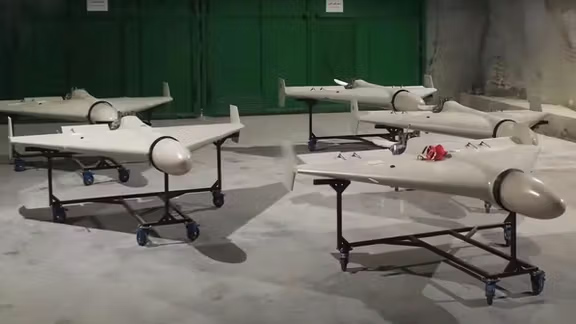
Ukrainian forces destroyed 14 out of 17 Iranian-made Shahed drones Russia launched, Ukraine's military said on Tuesday, with 13 drones destroyed over the Odesa region in the southwest.
"In total, up to 17 launches of UAV (unmanned aerial vehicle) attacks were recorded, presumably from the eastern coast area of the Sea of Azov," the command said in a statement on the Telegram messaging app.
This was the first attack by Iranian-made drones in almost two weeks. Russian long-range missile stockpiles have dwindled after repeated attacks on civilian targets since October when Moscow also began using hundreds of Shahed suicide drones.
Iran first denied it had supplied drones to Russia but in early November foreign minister Hossein Amir-Abdollahian admitted the deliveries, but claimed they were sent before the Russian invasion.
There have been intelligence reports that Tehran might be planning to also supply long-range missiles to Russia.
Ukraine's South military command said one drone hit an enterprise in the Odesa region, causing a fire, which was eliminated by the morning.
"According to preliminary information, there were no human losses," the command said in a statement.
The United States and its NATO allies have strongly condemned Iran’s drone deliveries to Russia. Washington, which has stopped nuclear talks with Tehran, has indicated that it expects the deliveries to stop before any further negotiations take place.
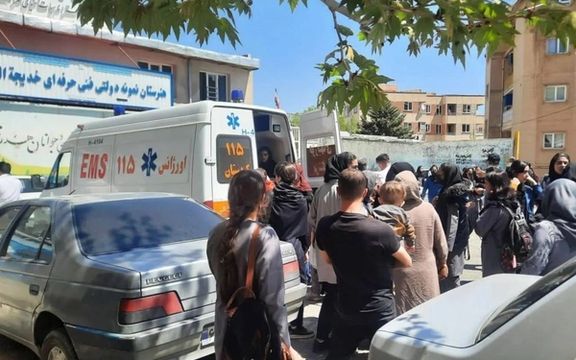
Amnesty International has called for an “independent, thorough and effective” investigation into the poisoning of schoolgirls across Iran.
In a letter to Iran’s Prosecutor General Mohammad Javad Montazeri on Tuesday, the human rights group said the authorities must ensure girls have equal and safe access to education and are protected from any form of violence.
Amnesty warned that the rights to education, health and life of millions of schoolgirls are at risk amid ongoing chemical gas attacks deliberately targeting girls’ schools in Iran.
According to the letter, more than 100 schools have been targeted since November, some more than once.
Amnesty says the poisonings appear to be a coordinated campaign to punish schoolgirls for their peaceful participation in nationwide protests that erupted in mid-September 2022, including through acts of resistance such as removing their mandatory hijabs and showing their hair in public while in school uniform.
Amnesty wrote: “An independent international delegation to investigate the attacks, including UN Special Rapporteur on the situation of human rights in Iran, UN Special Rapporteur on the right to education, UN Special Rapporteur on violence against women and girls, UN Special Rapporteur on the right to health, and Committee on the Rights of the Child, must also be granted access to the country.”
The letter adds: “Many people in Iran suspect actors tied to the state or pro-government vigilantes, who have been empowered by Iran’s discriminatory and degrading laws and policies that perpetuate violence against women and girls, of being involved in the attacks, especially given the authorities’ failure to take meaningful action and their attempts to silence public criticism.
“The attacks were first reported in Qom province and have since spread to other provinces and become more frequent with multiple schools attacked daily. These attacks have left schoolgirls hospitalized with symptoms including coughing, difficulty in breathing, nose and throat irritation, heart palpitation, headache, nausea, vomiting and numbness in limbs.”
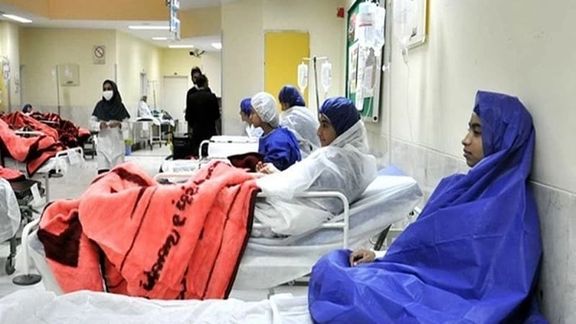
Amnesty also noted that the authorities have tried to silence public calls for accountability by subjecting distressed parents, schoolgirls, teachers, journalists and others to violence, intimidation and arrest for peacefully protesting or reporting on the authorities’ failure to stop the poisonings.
Meanwhile, the deposed Sunni Imam of Azadshahr Mowlavi Hossein Gorgij on Monday wished for the death of those who poison children.
He said the world earlier witnessed such chemical attacks on children in Syria.
Chemical attacks on girl's schools in Iran continued on Tuesday with students in at least 26 elementary and high schools poisoned according to reports.
A large number of students were taken to hospital in the cities of Kermanshah, Urmia, Eslamshahr, Tehran, Karaj, Ardebil, Saqqez and Ahvaz.
Videos published on social media show families gathered in front of the schools to vent anger at the regime’s indifference to the attacks.
The serial poisoning of students has been ongoing for over four months. The perpetrators have not been identified, while the attacks have spread to more and more cities.
Amid an international outcry over the attacks, the UN Human Rights Council in Geneva has called for a transparent investigation, while the White House has demanded that those responsible are held accountable.
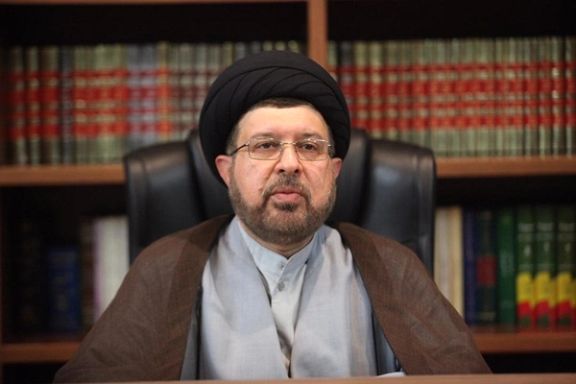
A suspect has been arrested over the horrific murder of two women in the city of Abadeh in Iran’s southern Fars Province, according to judicial officials.
The mutilated bodies of the victims were found in separate parts of the city.
Chief Justice of Fars Province, Kazem Mousavi announced on Tuesday that "the main suspect of the murders" was arrested on the evening of Monday, April 17.
The families of the victims told Iran International the judicial authorities have not provided the identity of the suspected murderer.
The murders come after the disappearance of local women in recent weeks.
A 55-year-old woman named Donya left home on Saturday morning for her office but did not return.
It is possible that one of the bodies is hers.
Relatives of the two feared victims told Iran International the bodies are so mutilated they cannot be identified initially. DNA tests are being conducted in the hope of providing identification.
Local residents believe there are more than two missing women, raising fears that there may be further victims, and fuelling growing anxiety among female residents of Abadeh.
The horrific practice of killing women and mutilating their bodies in Iran, known as “honor killing”, is a form of violence against women that is rooted in traditional gender roles and expectations. It is a way for men to control and punish women who are perceived to have violated social norms.
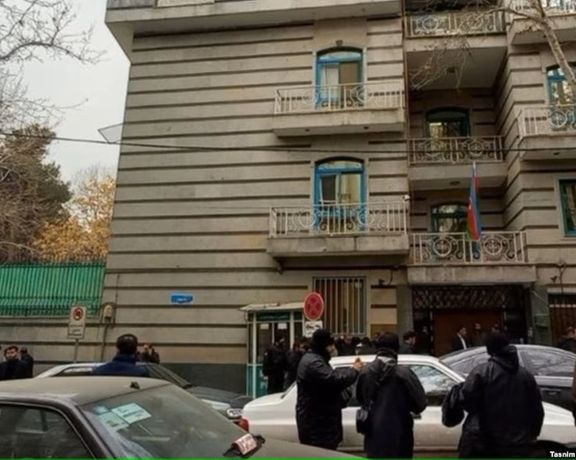
“Twenty local agents” of Iran’s Ministry of Intelligence have been arrested in Azerbaijan according to local media.
The suspects were spreading superstitions to undermine the Baku government under the guise of religious activities, Azerbaijani Ministry of Interior sources told the APA news agency.
The alleged agents are also accused of promoting drug trafficking.
This is the latest in a series of arrests in Azerbaijan of groups affiliated with Iran's Intelligence Ministry in recent weeks.
Relations between Azerbaijan and Iran have been strained in recent months after Baku announced plans to open formal diplomatic ties with Israel.
Azerbaijan closed its embassy in Tehran after an armed attack on it in January.
Earlier this month Azerbaijan expelled four Iranian diplomats over what it called “provocative actions”, possibly referring to several military exercises carried out by Iran's armed forces on the border over the past year.
Tehran accuses Baku of harboring Israeli intelligence and military elements that plan to use its territory in a possible attack against Iran’s nuclear installations.
Around a quarter of Iran’s population is Azari, with analysts and activists disagreeing over the closeness of their cultural and linguistic links to their neighbors to the north.